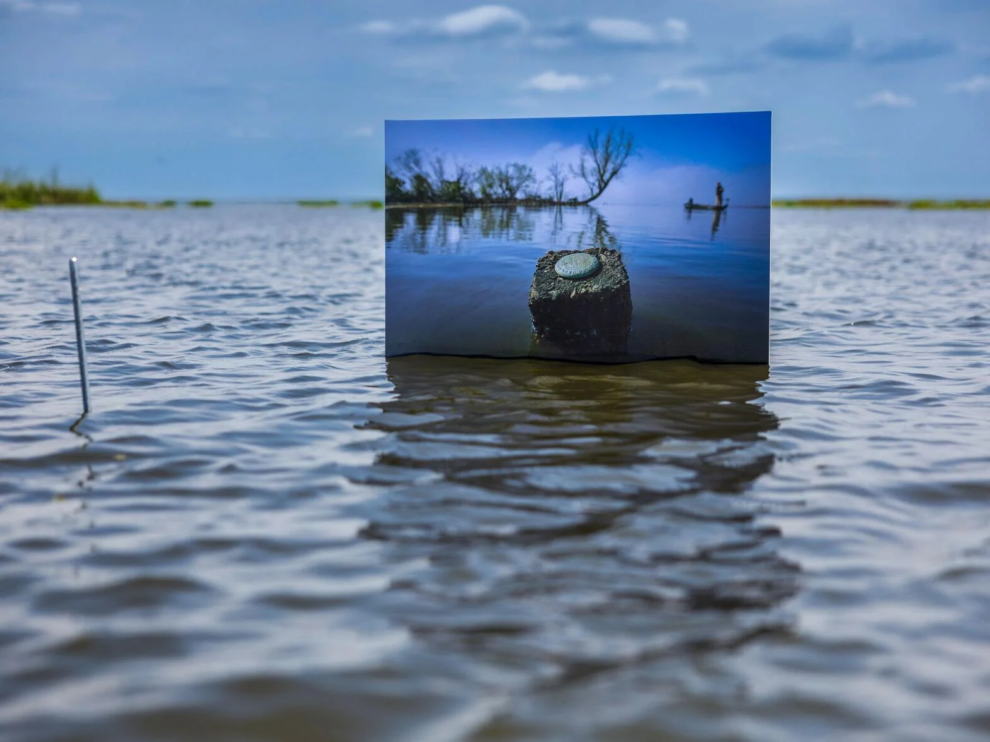While preparing another year-end update on Louisiana’s struggle to keep its sinking bottom third from being swallowed by the rising Gulf of Mexico, I faced a decision.
Should I highlight the odd bit of positive news to keep readers engaged?
Some media used that strategy last month when analyzing the latest National Climate Assessment. There were headlines expressing “some hope,” while the bottom line admitted the odds are growing that the nation faces disaster over the next few decades.
I understand that option. Bad news can be a downer.
But when I combined the conclusions from the national assessment with the latest political decisions in this state, I couldn’t do it. I would feel like a doctor telling a patient, “The cancer continues to spread at terminal speed — but your heart rate has improved.”
Would the patient have more questions about the spreading cancer, or the heart rate?
So, here come four painful truths about our future here as 2023 draws to a close.
1) The state plan for coastal survival now offers only slim hope for a sustainable coast of any size.
The 2023 edition of the Coastal Master Plan — one of the most advanced, science-based coastal adaptation plans in the world — confirms it can no longer rebuild more of our coast than the Gulf will drown. The best-case scenario sees another 1,100 square miles under water by 2070, while the worst case runs to 2,272. By comparison, the New Orleans footprint is 35 square miles. And that worst case is the best bet. That’s because the best case depends on the world rapidly reducing fossil fuel emissions 50% from 2010 levels over the next six years, a goal the latest resultsshow the world isn’t close to hitting.
2) The coastal plan is eight years away from a financial cliff with no rescue in sight.
The coastal plan needs about $1 billion per year to stay on schedule, a pace it maintained the last decade with the annual $500 million in settlements from the 2010 Deepwater Horizon spill. When that ends, many projects will come off the board and the Gulf will move northward even faster. With rising sea levels now prompting more congressionally powerful coastal states to compete for limited federal dollars, Louisiana is a long shot to find an adequate solution.
3) Warming and sea level rise are racing toward permanent severe impacts.
That’s the latest judgment of the Intergovernmental Panel on Climate Change, which has a history of being too conservative.
4) Louisiana voters continue to ignore the existential threat facing millions of residents and critical industries that are major economic engines for the state.
That was obvious in the results of the last election cycle when Jeff Landry, a climate denier and opponent of emission regulations, was elected governor on the first ballot. They also elected Liz Murrill attorney general, Landry’s top assistant when he ran that office and waged war on federal environmental regulations — especially any aimed at reducing emissions from the oil and gas industry. And he’s stocking his environmental posts with representatives from the most polluting and carbon-emitting industries, including oil, gas, coal and petrochemical.
It was no surprise, then, when Landry refused to say he will keep the climate task force created by Gov. John Bel Edwards, which set a goal for the state being carbon neutral by 2050.
“Everything that I’ve read about any policy [says] trying to be carbon neutral is extremely destructive on the economy,” Landry said.
He obviously hasn’t read what happens to the economy if that isn’t achieved: It collapses.
While other states are taking painful but essential steps to protect themselves from the growing impacts of climate change, Louisiana residents — already among the most impacted, and with more to lose in the future — keep electing policymakers who focus on the “good news.” Like becoming a hub for “storing” emissions while still subsidizing industries producing products that cause them.
Meanwhile, the cancer is rushing our coast to an early death at ever-increasing speed. So, the only conclusion on 2023: Louisiana is farther away from a sustainable coast now than it was a year ago.
Source: Nola.com
















